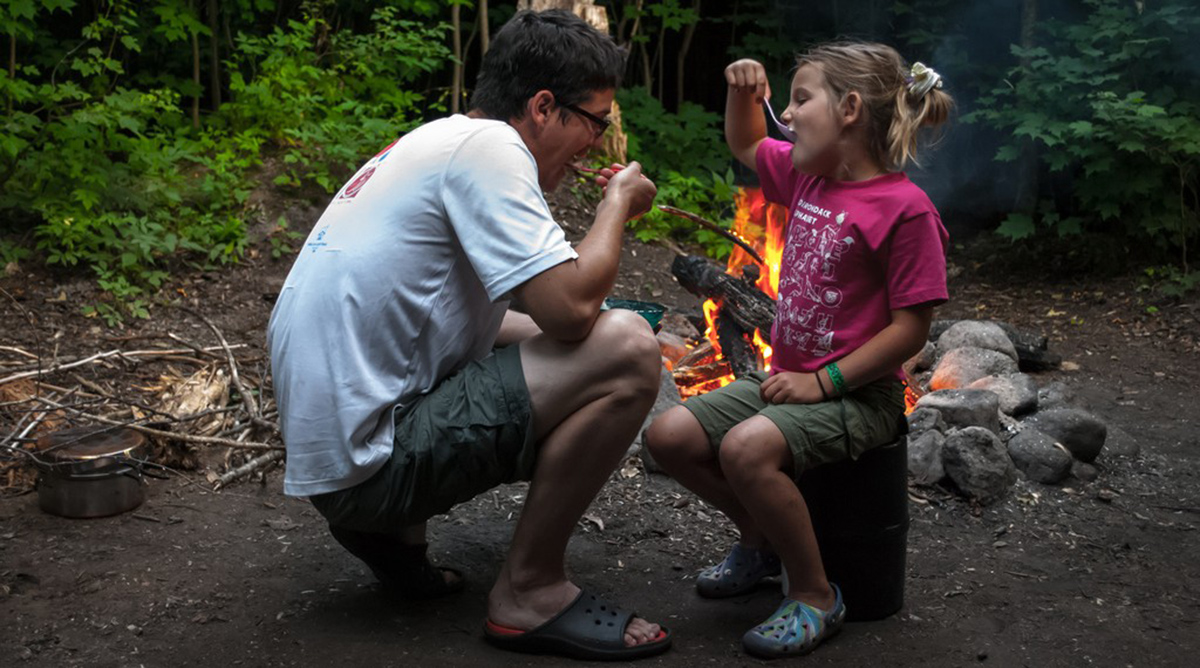Nothing could have prepared me for that all-important moment when my firstborn child was placed on my chest for the very first time. I had, of course, spent much of my pregnancy reading up about infant care and parenting choices. I knew what kind of mother I wanted to be. Indeed, I also read about that rush of love new moms are meant to feel and I had theoretically accepted the idea that nothing but actually having a baby could offer adequate preparation for parenthood, and I still wasn't prepared.

In other words, no matter how much knowledge you may acquire before becoming a parent, and no matter how many babies you may have taken care of, every new parent is completely inexperienced at being responsible for their own child. And isn't that daunting?
Some of the early parenting decisions and dilemmas you will be faced with simply relate to practical matters, but a great deal of them are health-related in some way.
Is that bowel movement really normal? Should you call the doctor about that fever? Do you have enough breast milk? Will your baby be quite normal after falling off the bed? Is co-sleeping safe? When should you start solid foods? Should you "cry it out" or soothe your baby every time she cries? What clothes are weather-appropriate? Is your baby developmentally delayed?
Guess what? You will figure it out, and you will also inevitably make many mistakes along the way. People you love, people you know, and total strangers will think they know better than you all along the way, and though some of them actually have useful advice, many are irritating (even those that might have useful advice). How do you deal with people who want to push their "sound parenting advice" down your throat?
Dealing With Unwanted Advice From Grandparents
Grandparents are bound to have views on your child-rearing decisions. They usually have plenty of experience, and they're also more likely to voice their opinions because they care about their grandchild and are excited about their new role in life. Having supportive grandparents on board can be tremendously helpful, but constant advice and inquiries about your and your baby's well-being may also come to feel like you're being choked. That's something most new parents prefer to avoid.
Grandparents' views about baby care may also be outdated, plain bizarre, or simply not your cup of tea.
What can you do to maintain a positive and close relationship with your parents and your partner's parents if they also have a tendency to offer unwanted advice? This depends on the grandparent's personality, on how strongly they believe they are right, and on your national and family culture. The good news is that you'll always have quite a few options.
Some grandparents are happy if you simply share what you do, and sometimes why. Their ultimate goal is to be part of your baby's life, and to support you in your new role however they can but without being pushy. You may tell these grandparents that you're so happy they are around for advice when you need them, but you just need to figure the rest out for yourself.
If you don't feel you need their advice on sleep training or when to introduce solids (things you may disagree on), eager but non-overbearing grandparents might really like it if you use their help in some way. You could ask them to research where you can get the baby products you use for the best price, they could be your co-Googlers in case of health issues, or they might like to cook you a meal here and there if you live nearby. When you do think you could do with their advice, they'll be happy to offer it.
Other grandparents are a bit pushier. They might have researched their own infant-care practices in detail way back in the "dark ages" and now think you ought to do things the same way.
See Also: Choose Safe Toys: Parenting Advice to Protect Kids While Playing
These folks sometimes benefit from emails that demonstrate the FDA or the World Health Organization now actually recommend "X thing you're doing", or whatever other explanation you have for doing what you're doing. You could also simply thank them for their thoughts and then proceed to ignore them. Occasionally, you might need to explain that their constant advice is making you feel stressed. An alternative is to pretend you're doing things exactly the way they suggested, though that approach is reserved for special cases.
Obviously, you're going to react to your well-meaning, loving mom differently than to your mother in-law with Narcissistic Personality Disorder — to name some random examples. Whatever you do, you definitely have the right to feel confident about making your own decisions and making that clear to grandparents, but if the grandparents are generally sane people and they say stuff you don't want to listen to about your baby's health, you may want to ask yourself if you need to pay attention anyway.
How To Deal With People Who Think They Know More About Baby Care Than You
Escaping 'Helpful' Loved Ones With Kids
Grandparents often have a special place in your family's heart and life, and you may feel the need to be more diplomatic with them than with other people. Loved-ones of the same generation or at least close in age also usually have quite a few thoughts on raising children. If they are parents of young kids themselves, it's quite possible they got caught up in those infamous "mommy wars" and want to convince you to parent like they parent. Alternatively, they might judge you silently... or not so silently.

Are you an independently thinking parent to-be or new parent? If you're going to listen to anyone's advice on anything, you might as well take my single bit of advice: stay away from discussing really controversial parenting topics with loved-ones who have kids if you want to keep your relationship intact. Welcome to parenthood. Talking about how you raise your children is more controversial than talking about politics or religion.
- Circumcision
- Breastfeeding and bottle feeding
- Vaccines
- Developmental delays
- Daycare and stay at home parents
- Earrings for baby girls
- Sleep training
- Cosleeping
- Car seats
- Pets and babies
- Infant literacy (Yes, really!)
- Introducing solid foods
OK, OK... I admit that you might just have unusually open-minded people in your life; people who respect you and your way of doing things, and people who don't get defensive when you make completely different decisions. Your friends and relatives could also be people who just happen to agree with you. If that doesn't turn out to be the case, though, I recommend staying away from these discussions. If you have no idea what they can be like in practice, go look for a (any) parenting forum on the internet and you'll see how ugly discussions about child rearing can be.
Talking To Childless Friends And Relatives
My personal experience tells me that folks who don't have kids at all can indeed be very vocal about how they think you should parent. This can happen for any number of reasons, but I think two categories are worth mentioning: people who would have liked kids but don't have any, and people who don't like kids and want them to be "seen but not heard".
Of course, you can discuss your life with your baby in as much detail as you want. Try not to feel guilty for wanting to talk about other things instead if the advice and comments are becoming unpleasant. Remember that parents of small kids often want to talk about their babies all the time. Asking about your childless loved-one's life is a sure-fire way to escape any parenting talk, and you'll also demonstrate that you are not living on a baby-colored cloud.
Random Strangers
Unless you're literally falling asleep while pushing your shopping cart because your newborn kept you up all night, or unless you're spanking your one-month old for crying, random strangers really don't have any business interfering with your parenting choices. No, not even if your baby is crying — and annoying them — in a public place.
See Also: Parenting Advice: How to Spend Quality Time With your Kids
Under the influence of postpartum hormones, I once engaged in a shouting match with a guy on the street who said carrying my baby in a baby carrier would make him infertile and suffocate him. (How can he be be infertile if he's dead?)
- Photo courtesy of Volkan_83 by Flickr : www.flickr.com/photos/volkan83/13900182474
- Photo courtesy of David Steltz by Flickr : www.flickr.com/photos/steltz/7778021498


Your thoughts on this